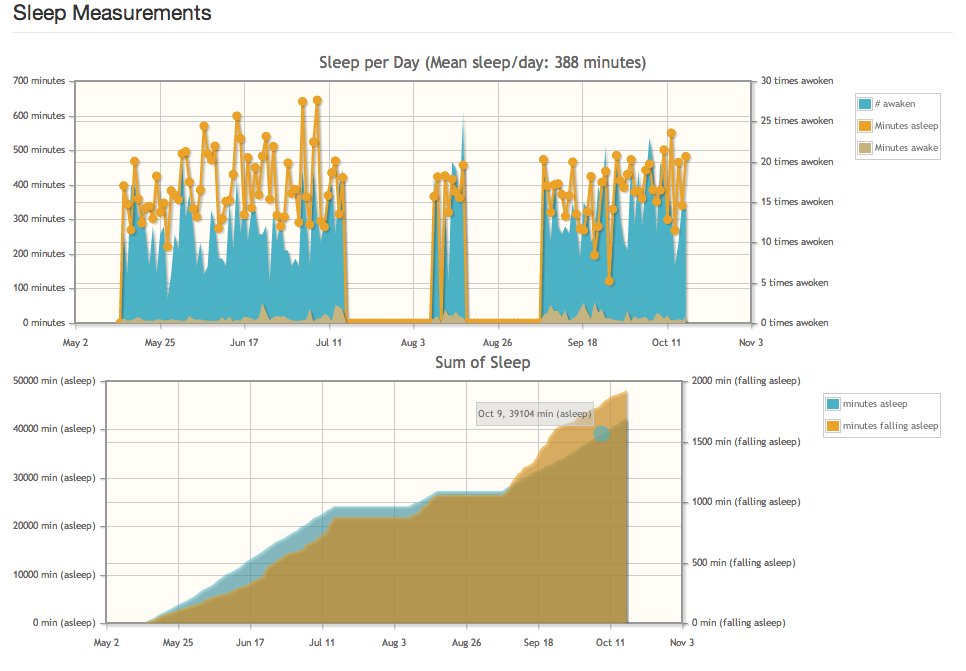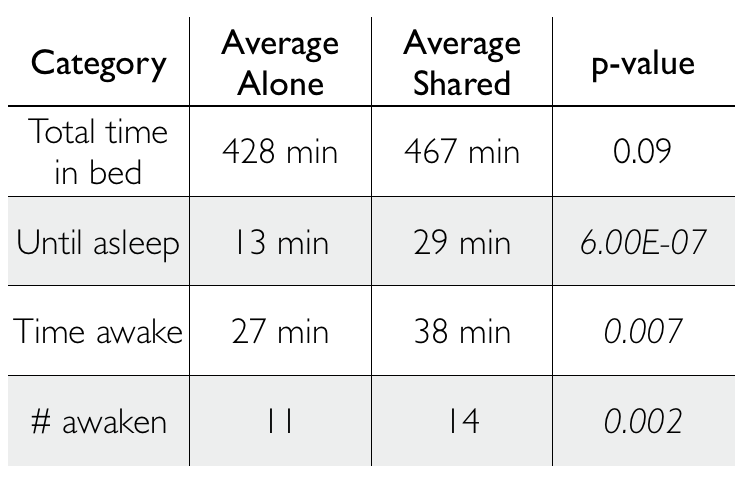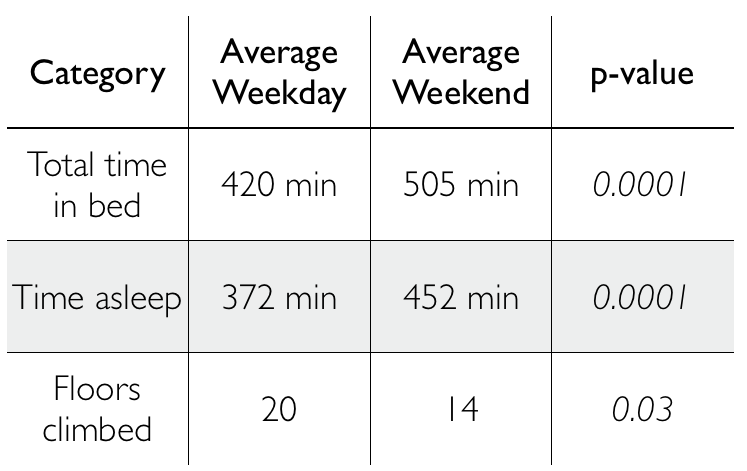Numbers From Around the Web: Round 11
Ernesto Ramirez
October 18, 2012
I’m typing this post while flying back to Southern California after spending a few days at a “Big Data” conference in San Francisco. One of the best things about the conference was meeting the subject of today’s round of Numbers From Around the Web. I first stumbled upon Bastian because he’s the main instigator and developer behind a great project called openSNP. Simply put, openSNP is a place you can host your direct-to-consumer genomic data for the world to see, understand, play with, download, well you get the point. This is a really interesting phenomenon that deserves it’s own post, but we’re going to explore some really neat QS experimentation and learning Bastian engaged in to better understand his sleep.
So, I found out about Bastian because openSNP announced that they also built a method to link and host Fitbit data (you can do that here if you’re so inclined). Turns out Bastian is an avid Fitbit user and has been using it to explore his sleeping patterns. His first major insight from his data indicated that in about 5.5 years he should be sleeping 24hrs per day:
So I downloaded my data from openSNPand started playing around with it: I did a simple linear regression over the time series and could indeed find a trend towards more sleep. The regression came out as y = 0.5x + 417, which ± says that for each two days that pass I will sleep a minute longer, which also means that it will be about 2000 days (or 5.5 years) until I will sleep 24 hours a day.
So yes, obviously regression may not be the best tool in the statistical toolbox to understand sleep so he decided to examine another question: “Do I sleep better or worse when there is someone in bed with me?” Using his sleep and calendar data he was able to identify nights he spend alone and nights he slept next to a warm body and found some pretty interesting stuff.
You can clearly see here in his table of 80 days of sleep (60 alone vs 20 with a companion) that he actually tends to sleep worse when he is sharing his bed. While he spends more time in bed, he takes longer to fall asleep, spends more time awake, and is awakened more often. For those of you who are not statically inclined those p-values indicate the probability that the difference in the two categories is due to chance (you can learn more about p-values here).
Like many good scientists he dug deeper to make sure what he was observing wasn’t related to other confounding variables such as the day of week:
Bastian didn’t find any significant differences in sleep quality between weekend and week days for his sleeping situation, but as one might expect he’s less active and sleeps more on weekends.
So, while this analysis might seem simplistic, one of the great things about Bastian and what he’s developing at openSNP is his willingness to be open with his data. Do you have some ideas about what you might find about Bastian from his Fitbit data? Have another hypothesis about sleep? Well you can test it out by downloading his data! You can start by reading his excellent post about this sleep analysis here.
Every few weeks be on the lookout for new posts profiling interesting individuals and their data. If you have an interesting story or link to share leave a comment or contact the author here.





